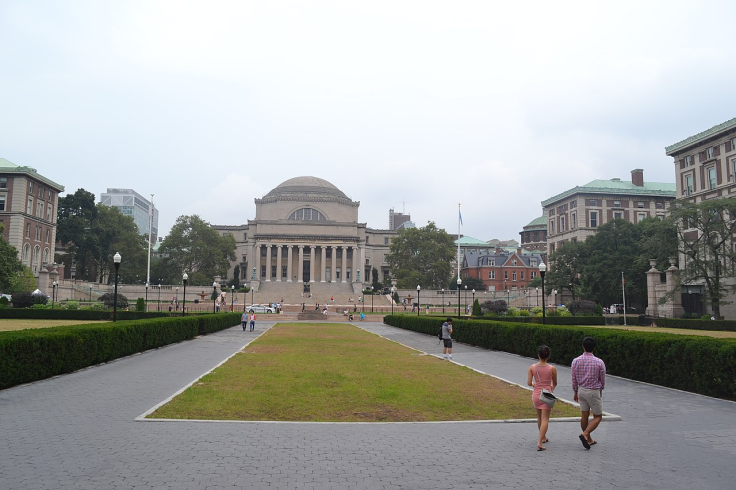Columbia University Places Administrators on Leave Over Insensitive Text Messages During Antisemitism Panel
ByColumbia University has garnered significant attention by placing three senior administrators on leave following reports of their exchanging sarcastic and insensitive text messages during an antisemitism panel.
The messages, deemed crass and inappropriate, were exchanged during a discussion intended to address serious concerns about Jewish life and antisemitism on campus. This incident has prompted an internal investigation and raised significant questions about the university's commitment to fostering an inclusive and respectful environment.

Incident Overview
Columbia University has placed three administrators on leave following reports that they exchanged sarcastic and insensitive text messages during a campus panel discussion on antisemitism. The incident, first reported by The Washington Free Beacon, occurred on May 31 during a Columbia College reunion event focused on Jewish life on campus. The individuals involved are Susan Chang-Kim, who holds the roles of vice dean and chief administrative officer at Columbia College, along with Cristen Kromm and Matthew Patashnick.
According to reports, the messages exchanged by the administrators included derogatory remarks and emojis that were considered dismissive of the serious nature of the panel's topic. One particular message reportedly mocked an op-ed about widespread antisemitism on campus written by Columbia rabbi Yonah Hain. Another message accused a panelist of exploiting the event for potential fundraising opportunities. Columbia College Dean Josef Sorett was also mentioned in the exchanges, responding affirmatively to some of the derogatory comments, though he remains in his position while cooperating with the ongoing investigation.
Administrative Actions and Responses
The university has initiated an investigation into the incident but has not publicly named the administrators involved, aside from the details provided by The Washington Free Beacon. In response to the controversy, Columbia University has placed Chang-Kim, Kromm, and Patashnick on leave. Dean Sorett, despite his involvement in the exchanges, has expressed remorse and continues to serve as dean during the investigation.
In a statement to the Columbia College Board of Visitors, Sorett acknowledged his part in the incident, stating, "I am committed to learning from this situation and to the work of confronting antisemitism, discrimination, and hate at Columbia." His commitment to addressing these issues underscores the university's broader dedication to fostering an inclusive and respectful campus environment. The university spokesperson emphasized that the investigation aims to thoroughly examine the incident and address any lapses in behavior and judgment by the involved administrators.
Broader Implications and University Climate
This incident at Columbia University has broader implications for campus climate and the administration's handling of sensitive topics such as antisemitism. The exchange of insensitive messages by senior administrators during a panel intended to address serious concerns about Jewish life on campus has sparked outrage and concern among students, faculty, and the wider community. It raises questions about the commitment of university leaders to tackling issues of discrimination and bias effectively.
The university's prompt action in placing the administrators on leave and initiating an investigation indicates a recognition of the gravity of the situation. However, it also highlights the need for a more profound cultural shift within the institution to ensure that all members of the university community feel respected and heard. The incident follows a series of recent events that have put Columbia University in the spotlight regarding its handling of sensitive social and political issues. Notably, the Manhattan district attorney's office recently dropped charges against 31 pro-Palestinian protesters who were arrested for trespassing after occupying Columbia's Hamilton Hall. This event, along with the insensitive text messages incident, underscores the complex and often contentious nature of campus activism and administrative responses.
As Columbia University navigates these challenges, the ongoing investigation and the administrators' leave will likely lead to discussions about improving administrative accountability and fostering a more inclusive campus culture. The outcomes of these discussions and subsequent actions will be critical in rebuilding trust and demonstrating the university's commitment to addressing and combating all forms of discrimination and bias.
The insensitive text messages exchanged by Columbia University administrators during an antisemitism panel have prompted a significant response from the university and highlighted the need for a deeper commitment to addressing discrimination on campus. As the investigation proceeds, the university community will be looking for meaningful changes and assurances that such behavior will not be tolerated in the future.
© 2025 University Herald, All rights reserved. Do not reproduce without permission.








